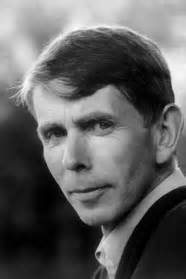A Quote by Elliott Colla
Academic writing you have to get right. Fiction you have to get plausible. And there's a world of difference.
Quote Topics
Related Quotes
Academic writing you have to get right. Fiction you have to get plausible. And there's a world of difference. In a way, if someone says this didn't feel exactly right, I don't care. But that is not okay to do in academia - it's not about feeling. You want to establish a pretty solid case. So did this allow me to express things differently? Absolutely. Another thing I've been thinking about as an academic: our writing style is expository, and in fiction, withholding information matters quite a bit. Withholding things in academia - there's no place for that!
That is as true for fiction or non-fiction. The writer has to really know their subject. It is really important to remember that the readers are a lot smarter than the writer. Also, good writing has to do with rewriting. You will never get it right the first time. So you rewrite and rewrite again until you get it right. Until you, and the reader, will be able to visualize what you're writing about.
Good writing is good writing. In many ways, it’s the audience and their expectations that define a genre. A reader of literary fiction expects the writing to illuminate the human condition, some aspect of our world and our role in it. A reader of genre fiction likes that, too, as long as it doesn’t get in the way of the story.
Writing fiction is not a profession that leaves one well-disposed toward reading fiction. One starts out loving books and stories, and then one becomes jaded and increasingly hard to please. I read less and less fiction these days, finding the buzz and the joy I used to get from fiction in ever stranger works of non-fiction, or poetry.
Translation is harder, believe it or not. You do have to come up with a story, and actually I'm mystified by that process. I don't exactly know how the story just comes, but it does. But in writing a story that you're inventing, versus writing a story that somebody else has made up - there's a world of difference. In translation you have to get it right, you have to be precise in what you're doing.
I'm so deeply interested in what it feels like to be other people that I get to operate under the illusion when I'm writing fiction that I'm not really revealing that much about myself. But, of course, I am, and I know that I am. And yet there's this sort of membrane that I get to work behind as I write my fiction, and I love it.
I think, when you are writing non-fiction, you feel there's an obligation to get it absolutely right, so all your factual details have to be, have, you know, to go through a long list of them and tick them. I'm not saying that's not important in fiction, but I think you have a bit more leeway; you can suit yourself.
I love the resource of the Internet. I use it all the time. Anything I'm writing - for example, if I'm writing a scene about Washington D.C. and I want to know where this monument is, I can find it right away, I can get a picture of the monument, it just makes your life so much easier, especially if you're writing fiction. You can check stuff so much quicker, and I think that's all great for writers.































